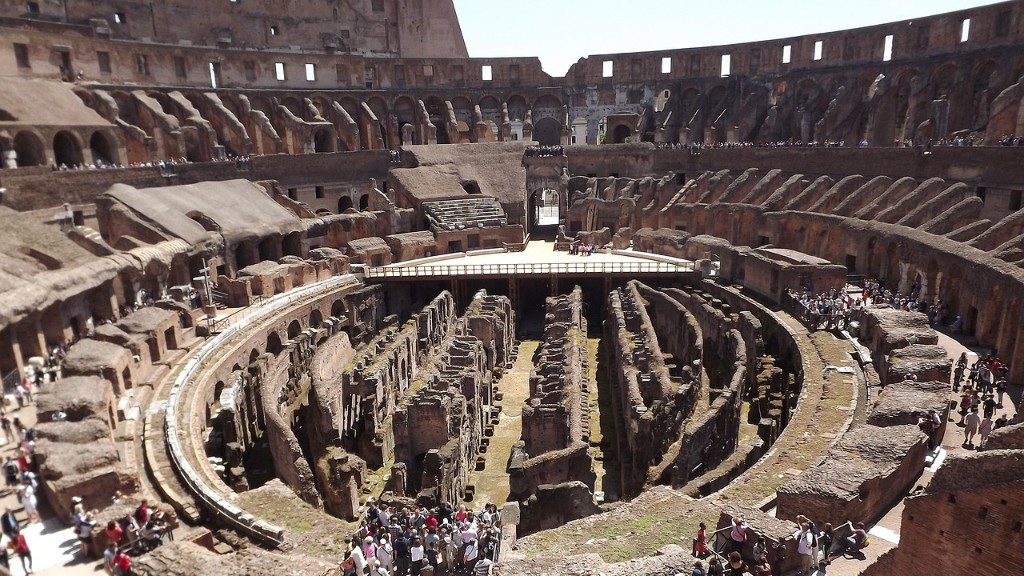Since the founding of the Roman Republic in 509 BC, Roman citizenship has played an important role in the history of ancient Rome. Furthermore, it is a privilege that has been widely coveted and written about for centuries. Citizens in ancient Rome enjoyed a wide range of rights, privileges, and honors that set them apart from the non-citizen populations. All members of the Roman citizenry could be divided into two classes – the populus Romanus and the peregrinus. This division was based on which family had held Roman citizenship for the longest amount of time. The populus Romanus had much more access to civic rights and privileges than the peregrinus, who were generally denied any meaningful political role and were often subjected to harsh laws and restrictions.
Citizens could enjoy a wide range of privileges and benefits that were denied to the non-citizen population. One of the most important of these was the right to vote in the assemblies. Only Roman citizens had the right to vote in the assemblies. It was also a right that could be shared among the citizen population. This right allowed citizens in ancient Rome to cast their vote in any matter that affected the public good, including matters of laws, taxes, consular appointments and other declarations. In addition to this, Roman citizens also had the right to own and trade property, which was another valuable privilege. Roman citizens also had greater rights in the legal system and were more likely to be apart of Roman juries.
Another important privilege enjoyed by citizens in ancient Rome was the right to serve in the military. The military in ancient Rome was primarily composed of Roman citizens who held the rank of legionary. By joining the legions, a Roman citizen could gain social prestige, benefits and the chance for political advancement. The army was also considered to be a source of great honor and glory, as numerous battles were fought in the name of the Republic. By joining the army, a Roman citizen could gain the respect and admiration of their peers.
In addition to these privileges, citizens in ancient Rome could also enjoy certain tax exemptions. As citizens, they were usually exempt from certain taxes that applied to non-citizens. They also enjoyed greater access to public services and could take part in religious festivals, public games, and other events reserved for citizen. This made Roman citizenship highly attractive and led to an influx of immigrants and other foreign individuals seeking to gain the benefits and privileges of Roman citizenship.
As can be seen, Roman citizenship was a highly desirable status that gave individuals a range of benefits and privileges. Not only did it provide some protections and rights, it also gave citizens access to certain resources and services that were otherwise unavailable to non-citizens. Furthermore, it allowed them to participate in politics, military service and other civic activities. This made Roman citizenship a highly sought after status and gave citizens a sense of pride and prestige.
The Path to Roman Citizenship
In the Roman Republic, the path to citizenship was open to all individuals who met the qualifications. To gain citizenship, an individual had to be born to two Roman citizens, be adopted by a Roman citizen, or perform some service that was highly valued by the state. Individuals from non-citizen families could also gain citizenship through marriage to a Roman citizen or by being freed from slavery by a Roman citizen. In general, individuals from other countries who wanted to gain Roman citizenship had to go through a process of application and verification before they could be accepted into the citizenry.
In the Roman Empire, the path to citizenship was much more restrictive. Emperor Augustus, the first Roman emperor, implemented strict regulations to ensure only certain individuals were granted Roman citizenship. Individuals had to demonstrate descent from a Roman citizen, or they had to be granted citizenship by the emperor himself. This government-controlled process was designed to ensure the citizenry was highly exclusive and not open to all individuals.
During the Roman Empire, the path to citizenship was much less open than it had been during the Republic. Emperor Hadrian implemented further restrictions in order to ensure only individuals of the highest social standing were granted a birthright citizenship. This led to an increase in the number of individuals from outside of the empire who were granted a birthright Roman citizenship. This process, known as “naturalization”, was designed to increase the number of Roman citizens without opening the door to all foreign individuals.
In general, gaining Roman citizenship was much easier during the Republic than it was during the Empire. This was due to the fact that during the Republic, Roman citizenship was open to all individuals who met the qualifications, whereas during the Empire, gaining citizenship was much more restrictive and limited to individuals of a high social standing. Furthermore, during the Republic, individuals from other countries could gain citizenship through naturalization, while during the Empire, this was much more restricted.
The Loss of Roman Citizenship
In order to protect the privileges of Roman citizenship, the government had to ensure individuals did not take advantage of its benefits by fraud or deceit. In order to do this, they implemented a number of ways to deprive individuals of their citizenship. These included punishments such as enslavement or deportation, and also the stripping of citizenship from individuals who were deemed to have acted in a manner that was not in line with the law or the interests of the state.
Individuals who were exiled from the Roman Republic or the Roman Empire were no longer considered citizens. This was done in order to protect the interests of the state and to ensure the privileges of Roman citizenship were preserved for individuals who had demonstrated loyalty to the state. Furthermore, individuals who committed unlawful acts or engaged in activities that were deemed to be immoral or unethical were also stripped of their Roman citizenship.
During times of crisis, Roman citizens could also be stripped of their citizenship if they failed to uphold their duties to the state. This could include failing to pay taxes, being absent from military service, or failing to contribute to the public good in some way. In general, any individual who failed to fulfill their civic duties or demonstrated disloyalty to the state in any way could be stripped of their Roman citizenship.
In general, Roman citizenship was an exclusive privilege that provided a wide range of benefits and privileges to individuals who could gain it. This made it a highly sought-after status, both during the Republic and the Empire. However, in order to protect the interests of the state, citizenship could also be revoked from individuals if they failed to uphold their civic duties or acted in a manner that was considered to be in breach of the law or against the interests of the state.
The Significance of Roman Citizenship
Roman citizenship was highly significant in the history of ancient Rome and played an important role in shaping society. During the Republic and the Empire, the distinction between those who were citizens and those who were not had a huge impact on how individuals were treated in society, both politically and socially. The right to be a citizen was highly coveted and those who were granted this right enjoyed a wide range of privileges and benefits, such as the right to participate in political affairs, the right to own property, and the right to serve in the military.
Furthermore, Roman citizenship was highly significant in the legal system. As citizens, individuals were generally more likely to be included in Roman juries, as well as being given greater protection from criminal prosecution. The legal system was largely based on the distinction between those who were citizens and those who were not, and those who were citizens were provided with more protections and legal rights than those who were not.
Additionally, the privileges of Roman citizenship allowed individuals to access certain services and resources that were otherwise not available to non-citizens, including access to religious festivals, public games, and other events reserved for citizens. This made Roman citizenship a highly desirable status and opened up access to services that were otherwise not available.
Finally, Roman citizenship was also highly significant in terms of the status it provided to individuals. During the Republic and the Empire, Roman citizens were seen as respected and distinguished members of society who were held in high regard by their peers. This status was highly sought after and the distinction between the citizen and non-citizen population provided individuals with a sense of pride and social standing.
The Decline and Legacy of Roman Citizenship
With the fall of the Roman Empire in 476 AD, the concept of Roman citizenship gradually declined. As the authority of the Roman government diminished, so did the significance and value of Roman citizenship. This was largely due to the fact that the government was no longer able to protect the interests of the citizen population, and the privileges associated with Roman citizenship were gradually eroded.
In the centuries that followed, the concept of Roman citizenship has been largely forgotten. While some countries, such as Italy, have implemented laws based on the concept of Roman citizenship, the concept is largely viewed as a relic of a distant past. Nonetheless, the legacy of Roman citizenship still remains and is seen in many of the concepts and conventions that serve as the foundations of modern society.
The concept of citizenship is still one of the most important concepts in modern society and is an integral part of many nations. Without Roman citizenship, the notion of citizenship would not exist and the clear distinction between citizens and non-citizens would not be established. Furthermore, the legal and political protections that citizens enjoy in many countries today are based on the model of Roman citizenship that was established thousands of years ago.
The legacy of Roman citizenship also lives on in terms of its roles in society. During the Republic and the Empire, Roman citizens enjoyed a privileged social standing and were afforded certain rights and privileges that set them apart from the non-citizen population. This is still evident today in many countries where citizens are afforded more rights and privileges than those with non-citizen status.
Conclusion
Roman citizenship was a highly significant and closely guarded concept in the history of ancient Rome. It opened up a wide range of privileges, benefits, and rights to individuals who were deemed to be citizens. Furthermore, it provided a clear distinction between those who were citizens and those who were not, which shaped the way that individuals were treated in both the political and social realms. Although the concept of Roman citizenship has largely been forgotten, its legacy can still be seen in many of the conventions and laws that govern countries today.





